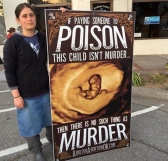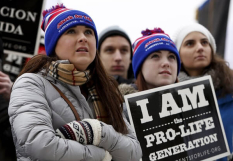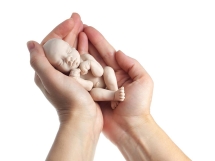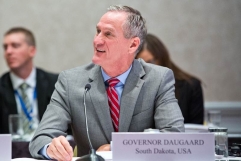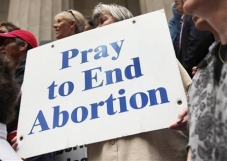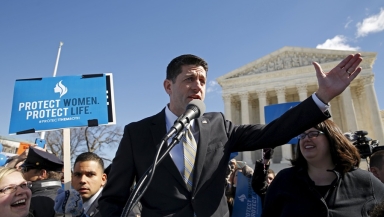
Two witnesses presented by Democratic lawmakers told a U.S. Senate committee Tuesday that it's OK to remove care for babies who survive abortions.
Their statements were made during a discussion on the Pain Capable Unborn Child Protection Act, which is being supported by pro-life advocates and has passed the U.S. House but failed in the U.S. Senate.
At the hearing called the "Late-Term Abortion: Protecting Babies Born Alive and Capable of Feeling Pain," Republican Senator David Vitter wanted to clarify if anybody "disagrees that a child born alive should get all available medical care for survival."
"I can imagine there are situations where the doctors and nurses have decided that there's not a point in medical intervention, and by whisking the baby away you've taken away a woman's chance to hold her child and say goodbye," said Dr. Diana Greene Foster, an associate professor of Obstetrics, Gynecology & Reproductive Sciences and the director of research for advancing new standards in reproductive health at the University of California-San Francisco, LifeSite News reported.
She noted that the bill "says that the child has to be taken away and receive medical care if there are signs of life, which doesn't allow for the physician, or the nurse, or – more importantly – the wishes of the family to say that they don't think care will help in this case, and they want to be able to hold their child."
Foster also said "doctors, and nurses, and women themselves, know best whether care would lead to survival. This bill doesn't allow for that judgment to be made."
However, Dr. Kathi Autman, a former abortionist who is now pro-life, said "the worst complication for an abortionist is to have the baby born alive. And I do not feel an abortionist has the best interest of that child at stake. And the mother may not, either."
"The bill is not saying you must give that baby extraordinary care – they're just saying you have to [give] them the same care you would give to any baby at that gestational age. ... The mother can go with them," she said.
Christy Zink, who had an abortion, said the question of survival of her son "gets very complicated."
"There is a possibility that this situation in itself, that ... diagnosis was not lethal. But if he had been born, he would have been born into a life of seizure, of pain, of suffering. And that to me, this question of survival, gets very complicated," she explained.
Dr. Colleen Malloy, assistant professor of paediatrics-neonatology at the Northwestern University Feinberg School of Medicine, told Zink that not all children "with seizure disorders ... live a life of pain and suffering."
Vitter told LifeSite News that "the reason I asked the question was because, from their perspective, I don't think there was any good answer. Either they agree ... absolutely, if there's any child is born, including after a failed abortion, that any medical assistance should be (inaudible) survival, or they don't. And they basically didn't. They tried to muddle it up."
The senator also asked if any witnesses denied the existence of foetal pain in babies at 20 weeks' gestation.
Jodi Magee, president and CEO of Physicians for Reproductive Health, explained that research shows that no foetal pain exists until the third trimester.
But when Vitter asked her if doctors use anaesthesia on babies in other operations, she said she "cannot speak to the clinical question."
"Today, America clearly saw the abortion industry's agenda: abortion on demand up until the day before birth, and babies who are accidentally born during an abortion should be left to die if that's what the mother and abortionist choose. In poll after poll, a majority of Americans reject this disgusting position and believe abortion should be restricted at least after 20 weeks," said Live Action president Lila Rose after the hearing.










